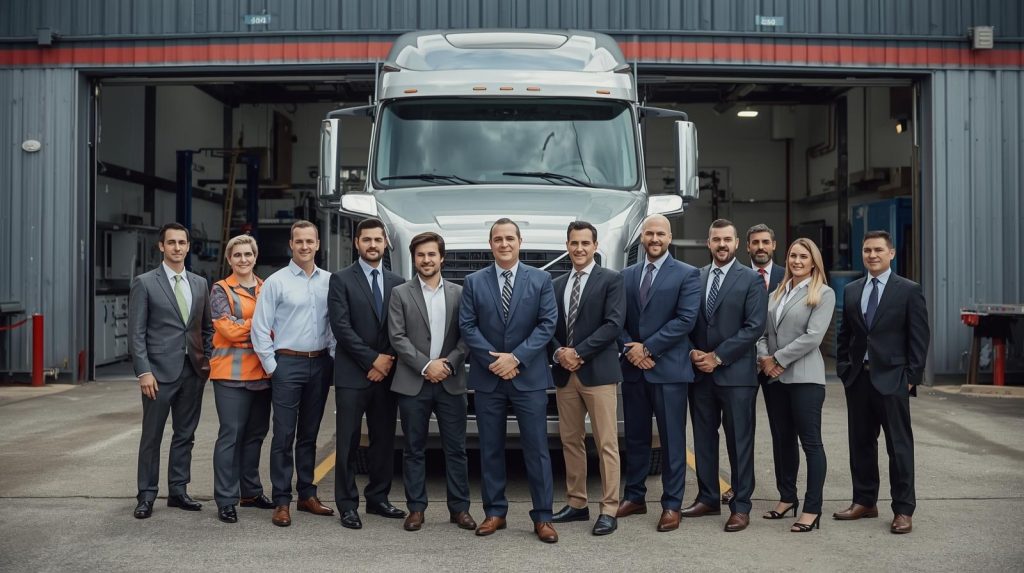Why Most Truck Repair Shops Struggle to Scale Beyond One Location (And How to Fix It)

If you’ve ever thought about opening a second location for your truck repair shop, you probably know this feeling — you’re already busy, the first shop depends on you 100%, and you can’t imagine doubling that chaos.
That’s the main reason most shops never scale — they’re built around a person, not a system.
Let’s break down why that happens, what separates scalable shops from stuck ones, and how to start building your own system.
1. Everything Lives in the Owner’s Head
In most single-location shops, the owner is the system.
They handle scheduling, talk to customers, approve jobs, order parts — and somehow still manage payroll.
That works until you try to scale.
When you open a second shop, you can’t clone yourself.
If your team doesn’t have clear processes, scripts, and standards, the new location will simply repeat the same chaos—just without your supervision.
Scaling starts with documentation and delegation.
Write down how you answer calls, create estimates, and close tickets.
It’s not exciting, but it’s the foundation of a business that runs without you.
2. No Predictable Flow of New Customers
Most truck repair shops grow thanks to word of mouth. That’s great — but it’s not scalable.
When you open a new location, there’s no “word of mouth” yet. You need a marketing engine that consistently brings in new calls and jobs.
The best shops we work with rely on Google Ads and an optimized Google Business Profile to create a predictable flow. They know:
- how many calls come per week,
- how much each call costs,
- what % turns into booked jobs.
Predictability = scalability.
If you can forecast your leads, you can plan your growth.
3. No Visibility, No Control
Without data, growth is just a guess.
If you don’t know how many calls were missed, what your true cost per lead is, or which services are most profitable — scaling becomes dangerous.
That’s why tools like CallRail, Google Analytics, and CRM dashboards are essential.
They show you where the leaks are — and what’s actually working.
When you see numbers clearly, you can manage from anywhere.
4. Hiring and Training: The Hidden Bottleneck
The biggest scaling killer? Inconsistent teams.
If you depend on “experienced techs” who all do things their own way, your customer experience will never be consistent.
That’s why leading truck shops create training systems and SOPs — short video guides, onboarding manuals, and checklists for service writers and techs.
When everyone follows the same process, every location delivers the same standard.
5. The Missing Ingredient: Leadership and Systems
Scaling is not about working harder — it’s about building a business that runs on systems, not on effort.
You need three layers of control:
- Marketing System — steady flow of calls and jobs.
- Sales System — scripts, follow-ups, and conversion tracking.
- Operational System — workflows, KPIs, and accountability.
When these are in place, adding a new shop doesn’t add chaos — it adds revenue.
🧩 Checklist: Is Your Shop Ready to Scale?
Before opening a new location, go through this quick self-check.
If you can confidently say “yes” to most of these — you’re ready to grow.
| ✅ | Question |
|---|---|
| ☐ | Do you have at least one person besides you who can run daily operations independently? |
| ☐ | Are your key processes documented (calls, estimates, payments, follow-ups)? |
| ☐ | Do you track call volume, cost per call, and conversion rate weekly? |
| ☐ | Do you have a predictable lead source (Google Ads, GBP, repeat customers)? |
| ☐ | Are your financials tracked per service type (not just total revenue)? |
| ☐ | Can your technicians or service writers be replaced and trained within 2 weeks? |
| ☐ | Do you have a CRM or dashboard showing real-time shop performance? |
| ☐ | Is your reputation solid (4.5+ rating and consistent reviews)? |
| ☐ | Can you take a week off without everything falling apart? |
👉 If you checked fewer than 6 boxes, your business isn’t quite ready to scale yet — but you can get there quickly with the right systems.
Conclusion
Most truck repair shop owners are amazing operators—but to scale, you must start thinking like a CEO.
That means stepping out of the daily grind and building systems that work without you.
If you want help creating a roadmap for scaling your shop,
book a free strategy consultation with Element —
we’ll walk you through what’s missing, how to fix it, and what to do next to grow your business predictably.